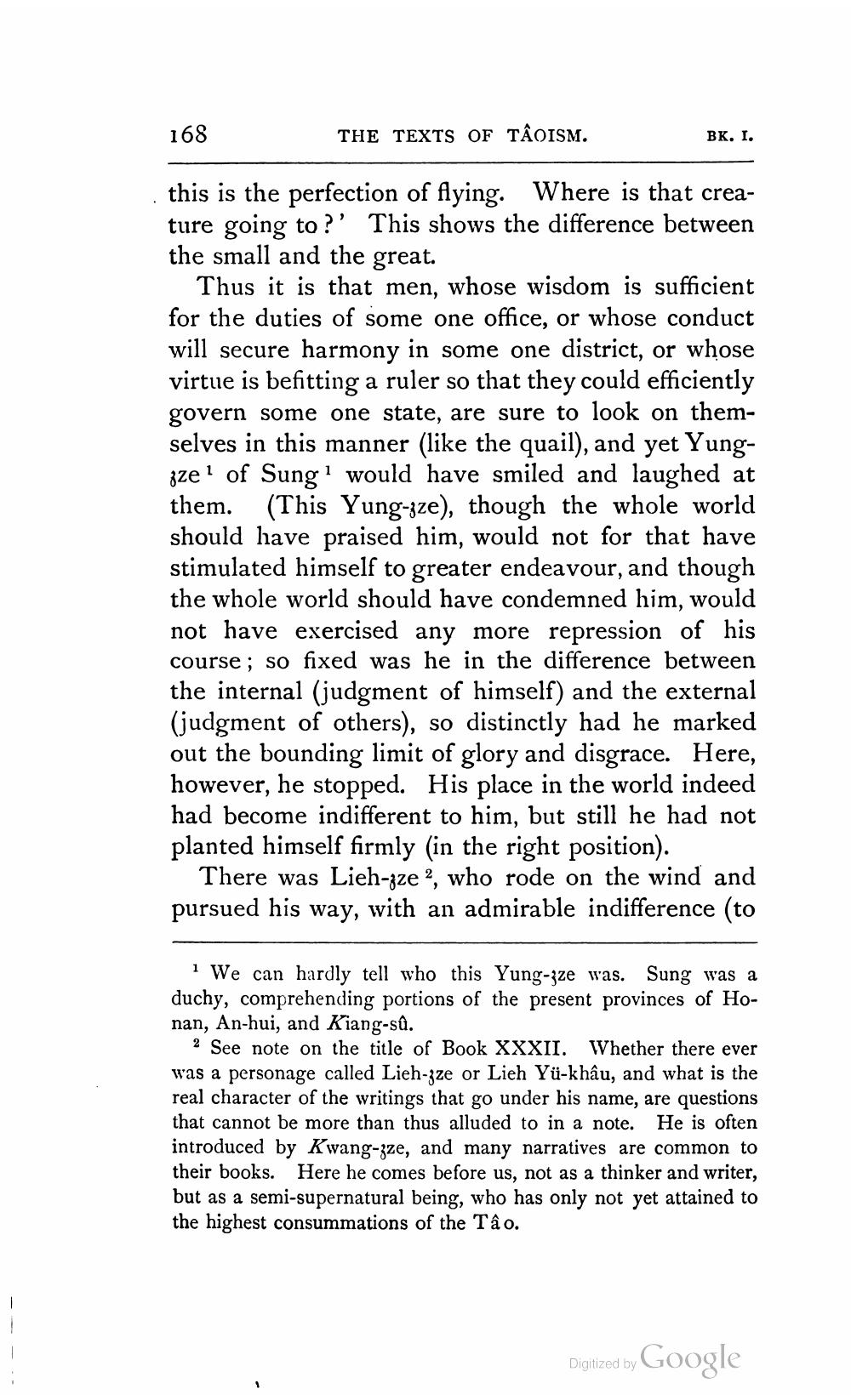________________
168
THE TEXTS OF TÂOISM.
BK. I.
this is the perfection of flying. Where is that creature going to?' This shows the difference between the small and the great.
Thus it is that men, whose wisdom is sufficient for the duties of some one office, or whose conduct will secure harmony in some one district, or whose virtue is befitting a ruler so that they could efficiently govern some one state, are sure to look on themselves in this manner (like the quail), and yet Yungzzel of Sung i would have smiled and laughed at them. (This Yung-zze), though the whole world should have praised him, would not for that have stimulated himself to greater endeavour, and though the whole world should have condemned him, would not have exercised any more repression of his course; so fixed was he in the difference between the internal (judgment of himself) and the external (judgment of others), so distinctly had he marked out the bounding limit of glory and disgrace. Here, however, he stopped. His place in the world indeed had become indifferent to him, but still he had not planted himself firmly (in the right position).
There was Lieh-zze 2, who rode on the wind and pursued his way, with an admirable indifference (to
1 We can hardly tell who this Yung-jze was. Sung was a duchy, comprehending portions of the present provinces of Honan, An-hui, and Kiang-sû.
2 See note on the title of Book XXXII. Whether there ever was a personage called Lieh-zze or Lieh Yü-khâu, and what is the real character of the writings that go under his name, are questions that cannot be more than thus alluded to in a note. He is often introduced by Kwang-sze, and many narratives are common to their books. Here he comes before us, not as a thinker and writer, but as a semi-supernatural being, who has only not yet attained to the highest consummations of the Tâo.
Digitized by Google




